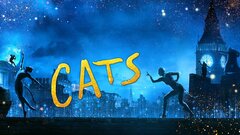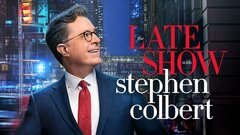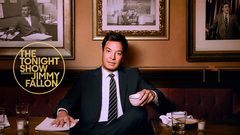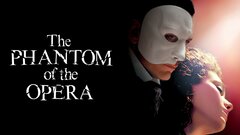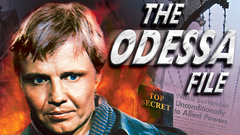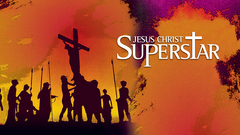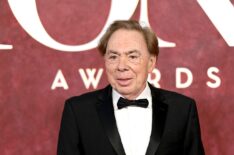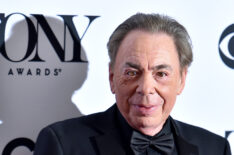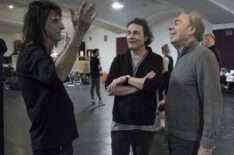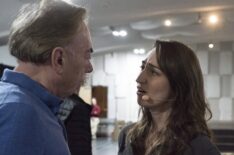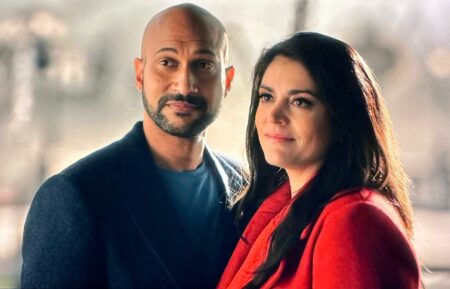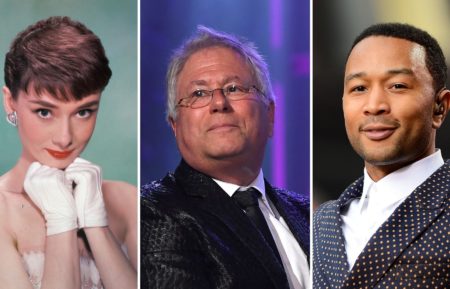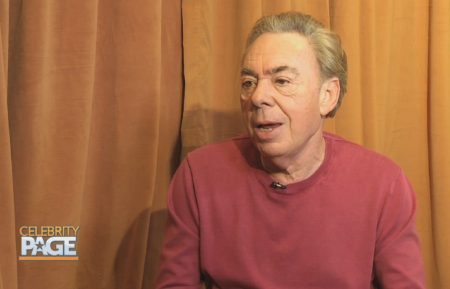Music that transcended the ages was Andrew Lloyd Webber's gift to the world. A musical genius, Webber composed some of the most visually stunning and lushly orchestrated stage productions that enjoyed universal acceptance and commercial success. An unstoppable force throughout his decades-long career, Webber was rewarded with an incalculable number of awards including Tonys, Grammys, and International Emmys, among others, for his extensive body of work - not just on stage but also in film and on television.
He first shot to fame with the high-energy musical "Joseph and the Amazing Technicolor Dreamcoat" (1968); the musical prelude to the numerous successful collaborations he enjoyed with lyricist Tim Rice. Webber kept up the tempo with the groundbreaking rock opera, "Jesus Christ Superstar" (1971) before mesmerizing audiences worldwide with the sweeping ballads and eclectic melodies found in the biopic "Evita" (1978).
In 1981, Webber cranked up the volume and wrote the music for the eye-popping production "Cats," one of the longest-running international musicals. It was all a build-up to his most extravagant stage musical, "The Phantom of the Opera" (1986), a haunting love story that captured the hearts of millions worldwide, due to its breathtaking stage design, lavish costumes and piercingly beautiful music that could only have come from Webber's magical imagination. Webber's influence was very much felt in the industry.
In 2010, he unveiled the West End production of "Love Never Dies," the much-anticipated sequel to "Phantom," which proved a strong testament to his enduring music legacy.
Andrew Lloyd Webber was born on March 22, 1948 in South Kensington, London, England. Born into a musical family - his father, William Lloyd, was an organist and composer; his mother, Jean Johnstone, a pianist and violinist; his brother, Julian, a renowned cellist. With such strong musical influences, it was not surprising when Webber began composing at an early age, showing aptitude for the piano and violin.
He studied music at Westminster School and by the time he graduated, had already written nine musicals. At age nine, Webber was a skilled organ player and began assisting his father during performances. His first published composition appeared in The Music Teacher magazine when he was 11 years old and gained positive reviews from the publication's editors.
In 1964, he continued his studies at Oxford University as a Queens Scholar of history.
Webber's studies took a backseat when he dropped out of college at age 17 to compose musicals. Around that time, he also met lyricist Rice, who at the moment, was already immersed in writing pop songs. They began what ultimately became one of the most successful musical collaborations of all time. One of their earliest works was the West End production of "Joseph and the Amazing Technicolor Dreamcoat," a "pop-cantata" of the biblical figure's colored coat. The play was an instant hit and demanded many repeat performances.
Over the years, the lighthearted musical underwent several transformations and adaptations. It premiered in New York in 1970 and was well received by many theater groups. In 1999, it was made into a straight-to-video film starring former teen icon Donny Osmond. The film earned decent reviews, due to an energetic cast, Las Vegas-style glitz and catchy tunes.
The Webber-Rice team once again looked to the Bible for their next major production, "Jesus Christ Superstar," a rock opera based on the last week of Jesus' life as seen through the eyes of his disciple, Judas Iscariot. It was originally released as a demo disc because the producers thought it was too daring of a production, but it eventually premiered on Broadway (and later at West End) despite opposition from some religious groups. But, as was often the case, the controversy only served to make the play more in demand and it even garnered five Tony Award nominations in 1972, including Best Original Score. The groundbreaking soundtrack also featured the hit single "I Don't Know How to Love Him" (1971).
The first film adaptation of "Jesus Christ Superstar" was released in 1973 and became one of the highest-grossing films of that year. The remake, which took on a more modernistic approach than the original film version, was released in 2000 and won an International Emmy Award in 2001 for Best Performing Arts Film.
Webber and Rice scored another coup with the musical biopic, "Evita," about the rise and fall of Argentina's infamous Eva Peron, the wife of Argentine dictator Juan Peron. While "Evita" was originally meant to be a recording, the dynamic duo's rich score, which included the internationally acclaimed hit song "Don't Cry for Me, Argentina," lent itself to the elaborate stylings of the stage. The music in "Evita" was mostly classical, but as it was in many of Webber's work, it also incorporated some powerful ballads, rhythmic Latin songs, and rock music. After almost 3,000 performances during its initial run in London, "Evita" took Broadway by storm in 1979 and sold out more than a thousand performances, spawning several touring companies.
Critics heaped praise on the musical, and in 1978, it won 11 Tony Awards including Best Musical and Best Score. A film version was released in 1996 featuring pop icon Madonna in the lead and Antonio Bandera as the enigmatic Ché Guevarra. The film earned five Academy Awards nominations and won Best Original Song for "You Must Love Me," which was composed just for the film.
In spite of the success of its stage and film versions, "Evita" faced criticisms that plagued Webber's compositions for many years. He was often accused of borrowing songs, and his work was sometimes called synthetic and repetitive. Nevertheless, the composer's extensive body of work was still being considered genius.
The year 1981 marked a professional and personal breakthrough for Webber, who up until then had created musical magic solely with Rice. Webber embarked on a solo project that year, setting a series of children's poems based on Old Possum's Book of Practical Cats, written decades earlier by T.S. Eliot. Amidst immense skepticism over the play's simple plot, Webber delivered the all-singing, all-dancing musical spectacle "Cats" (1981-2002), one of the most beloved and lavish productions ever made.
Its theatrical design concept was revolutionary, with the stage transformed into a giant junkyard with bottles and cans strewn about around a huge tire that was the playground for the show's stars. Dressed in exotic costumes, the cats performed breathtakingly graceful somersaults to Webber's richly orchestrated tunes, including the global sensation "Memory."
In spite of the initial challenge of having to find a replacement for Judi Dench (replaced by Elaine Paige), originally cast as Grizabella but who suffered an injury prior to the London premiere, the colorful production opened to very strong reviews. Webber's diverse musical amalgamations were very apparent in "Cats," which ranged from classical to pop, hymnal songs, rock, jazz, and electro-acoustic.
"Cats" played a total of 8,949 performances in London, holding the record as that city's longest-running musical until "Les Misérables" (1985) surpassed it in 2006. American audiences were just as enthralled as their British counterparts with "Cats." Since its Broadway debut in 1982, the Tony Award-winning musical played a total of 7,485 times until its last show in New York in 2000. Webber produced a direct-to-video version titled "Great Performances Cats" (1998) that sold more than 4 million copies worldwide.
"Cats" was a tough act to follow, and for a while, Webber's subsequent productions like "Song and Dance" (1982) - a combination of two of his earlier works "Variations" (1978) and "Tell Me on a Sunday" (1979) - did not receive the international recognition that his previous plays enjoyed. In between his stage productions, Webber also dabbled in movies, scoring the quirky feature film "Gumshoe" (1971) and the thriller "The Odessa File" (1974).
In 1977, he founded The Really Useful Group to manage and produce all of his compositions and other works. That evolved into purchasing London's Palace Theatre in 1983, as well as seven other theaters. In 1984, Webber composed the rock musical "Starlight Express," which revolved around a child's dream of his toy train set coming to life.
The show's theatrical concept was similar to "Cats;" both were spectacles that relied heavily on elaborate staging techniques and special effects, and featured dancers on roller skates. Both the London and Broadway versions premiered in 1984 to decent reviews. In 1985, Webber wrote "Requiem Mass," where he set to music the Latin text of the Roman Catholic Mass of the Dead. "Requiem Mass" earned Webber a Grammy Award for Best Classical Composition the following year.
Webber's music took center stage again with the international phenomenon "The Phantom of the Opera," an operatic masterpiece based on the French novel, Le Fantôme de l´Opéra (1925) by Gaston Leroux. Webber's musical masterpiece transported theatergoers to the Paris Opera House circa 1911, where the tragic love story between a mysterious masked figure known as the Phantom and a beautiful soprano named Christine Daaé unfolds.
Audiences worldwide were transfixed with the opulent stage design - the falling chandelier, hundreds of candles rising above a glossy black floor, and the Phantom and Christine on a boat gliding over waters with the mist rising - since the show opened in London in 1986 and on Broadway two years later. Both productions featured Michael Crawford, who popularized the worldwide hit "Music of the Night," and British soprano Sarah Brightman, in the leading roles.
Webber, at the time, was married to Brightman whom he met while she was in rehearsals for "Cats." Webber, in fact, wrote the role of Christine Daaé for Brightman, whose vocal range was perfectly suited for the soaring ballads he set for the Phantom's leading lady.
"Phantom of the Opera" was undoubtedly one of Webber's greatest accomplishments. It was Broadway's longest-running musical and was one of the highest-grossing productions ever - earning $3.3 billion worldwide. It was translated into several languages and reproduced in more than 20 countries. The film version was released in 2004 with Gerald Butler in the title role and newcomer Emmy Rossum as Christine Daaé. (Hugh Jackman and Katie Holmes were originally tapped to play the lead roles, but were replaced due to scheduling conflicts.)
Joel Schumacher, a director of high-energy, flamboyant films, collaborated with Webber on the big-screen version.
The "Phantom of the Opera" movie grossed more than $160 million worldwide, but the reviews were mixed. Many critics panned the film's failure to deliver the agonizing romance and sense of real danger that the stage version offered, and most were less than disapproving of Butler's musical abilities. Kinder reviews focused on the pure spectacle of the set and costume design, but not much else in terms of how the film captured the essence of the original stage production.
"Learn to Be Lonely," a new song written for the film, was nominated for Best Original Song at the 2005 Academy Awards. Webber, who was given total artistic control, gave Schumacher high praises for his directorial work on the film and added that "his use of music in the film was exceptional."
The years following "The Phantom of the Opera" were marked with highs and lows for the world-famous composer. In 1989, Webber collaborated with lyricists Don Black and Charles Hart on the musical production of "Aspects of Love," based on the story by David Garnett.
The play followed a noticeably less elaborate theatrical concept than Webber's previous work and the music was more chamber-like than operatic. The original production of "Aspects of Love" had a decent four-year run in London but closed in less than a year stateside on Broadway.
In 1992, Webber was knighted by Queen Elizabeth II for his services to the arts and was given an honorary life peer in 1997 as Baron Lloyd-Webber. In 1993, Webber collaborated with Christopher Hampton and Don Black on a musical production of Billy Wilder's critically acclaimed movie "Sunset Boulevard" (1950) about the life of silent movie star Norma Desmond.
While the grand production received mostly rave reviews - it won seven Tony Awards in 1995 - and enjoyed long runs internationally, it was wrought with casting difficulties and expensive lawsuits. Patti Lupone earned high marks for playing Desmond in the London production, but she was not well received by American audiences.
Glenn Close replaced her in the Los Angeles production, but casting such a big-name celebrity skyrocketed production costs. Faye Dunaway was then chosen to replace Close, but was fired days before her opening. The play ultimately closed at a loss in 1997.
Webber's next musical, "Whistle Down the Wind," based on the 1961 film of the same name, suffered almost the same fate as "Sunset Boulevard." It premiered in Washington, D.C. in 1996, drawing mostly negative reviews, and its Broadway debut that was scheduled in 1997 was cancelled. A reworked, more successful version opened in the West End in 1998 and lasted until 2001. In spite of Webber's emotive score and haunting love songs, the second U.S. stage production only lasted from 2007-08.
The tireless composer broadened his appeal in the 2000s with numerous projects on television and in film. In 2002, he worked with top Bollywood composer A.R. Rahman on "Bombay Dreams," a lavish and very colorful musical spectacle set against the backdrop of India's famous Bollywood film industry.
Webber staged a new production of "Evita" in London in 2006 and a unique, shorter version of "The Phantom of the Opera" in Las Vegas in the same year. Webber also pioneered television casting for the theater, which took him all across Europe, the U.S. and Canada in search of new talent. He premiered the groundbreaking talent shows "How Do You Solve A Problem Like Maria" (BBC, 2006), "Any Dream Will Do" (BBC, 2007) and "I'd Do Anything" (BBC, 2008), which all sought to cast new leads in the new West End productions of "The Sound of Music," "Joseph and the Amazing Technicolor Dreamcoat," and "Oliver!," respectively.
In 2008, he appeared on the hit reality competition "American Idol" (Fox, 2002-16) as a mentor to the contestants who all sang a Webber-penned show tune. Webber's commentary proved to be more interesting than even the young singers' mostly failed attempts to cover his songs. The composer's segment with David Cook, that season's winner, bordered on creepy when he suggested Cook infuse more emotion into his rendition of "The Music of the Night" by imagining the composer as a gorgeous 17-year-old girl.
Webber's highly anticipated sequel to "The Phantom of the Opera," titled "Love Never Dies," opened at the West End in 2010. Set 10 years later, the harrowing sequel continued the story of the Phantom who flees his secret lair underneath the Paris Opera House to haunt the fairgrounds of Coney Island.
However, sad news rocked the music world when Webber announced in October 2009 that he was diagnosed with early stage prostate cancer and would be undergoing surgery. A month later, he was readmitted to the hospital after developing a chronic infection following surgery.













